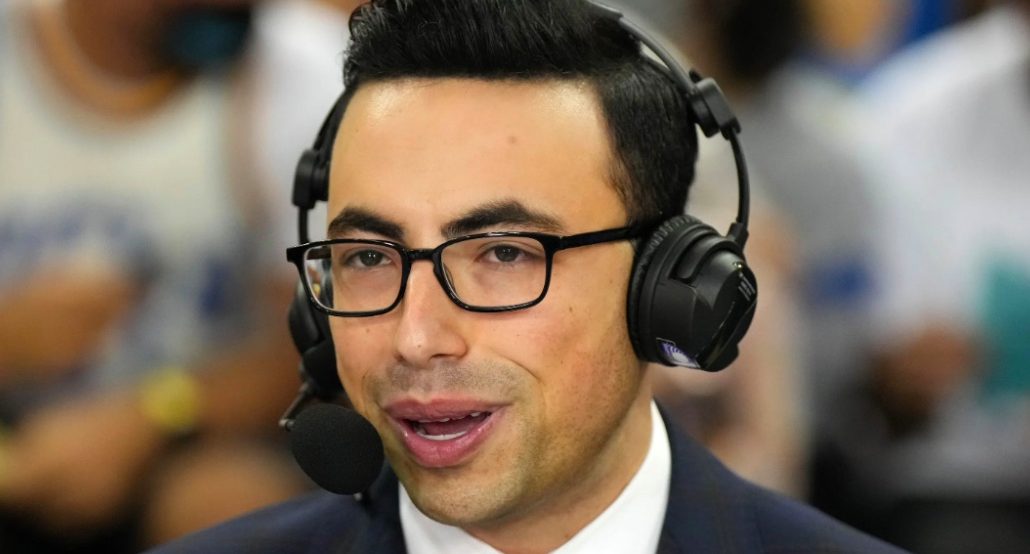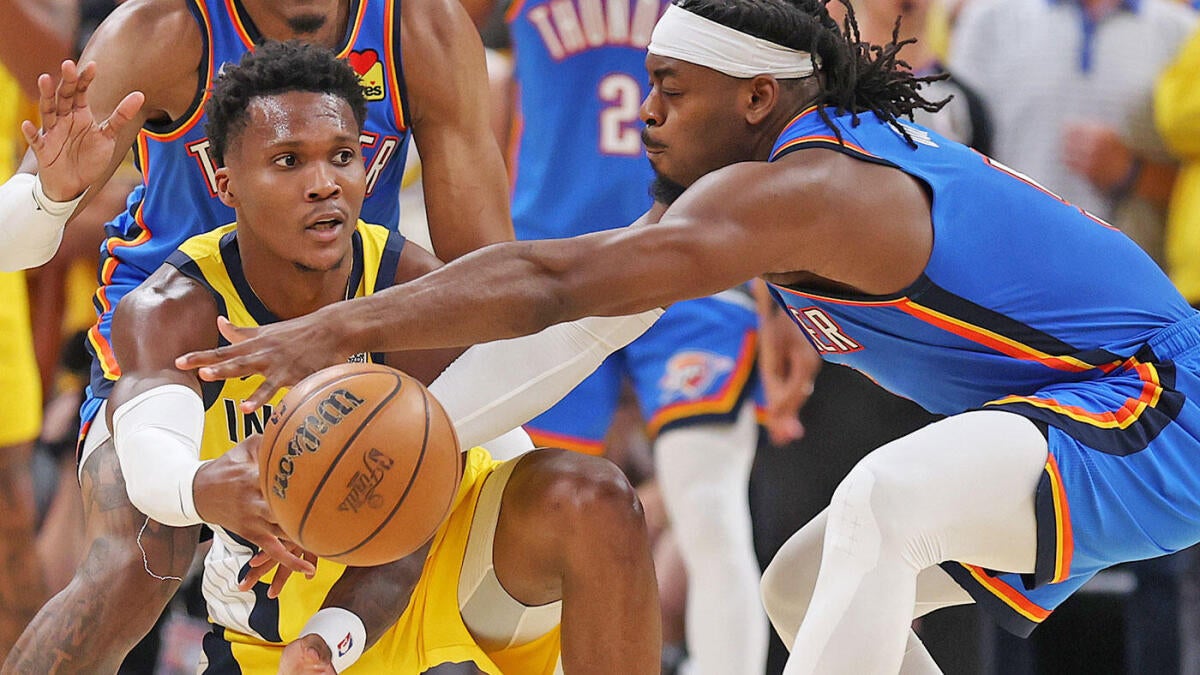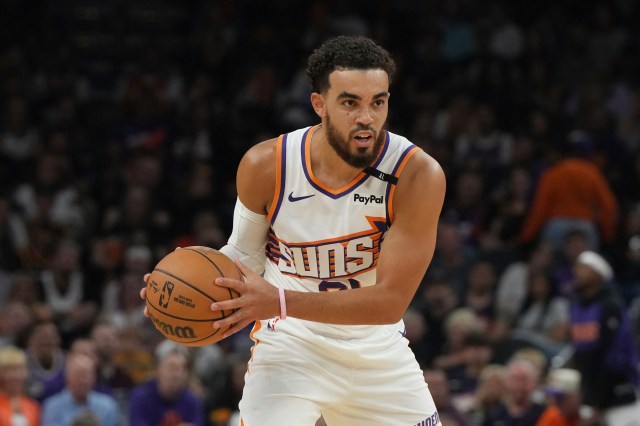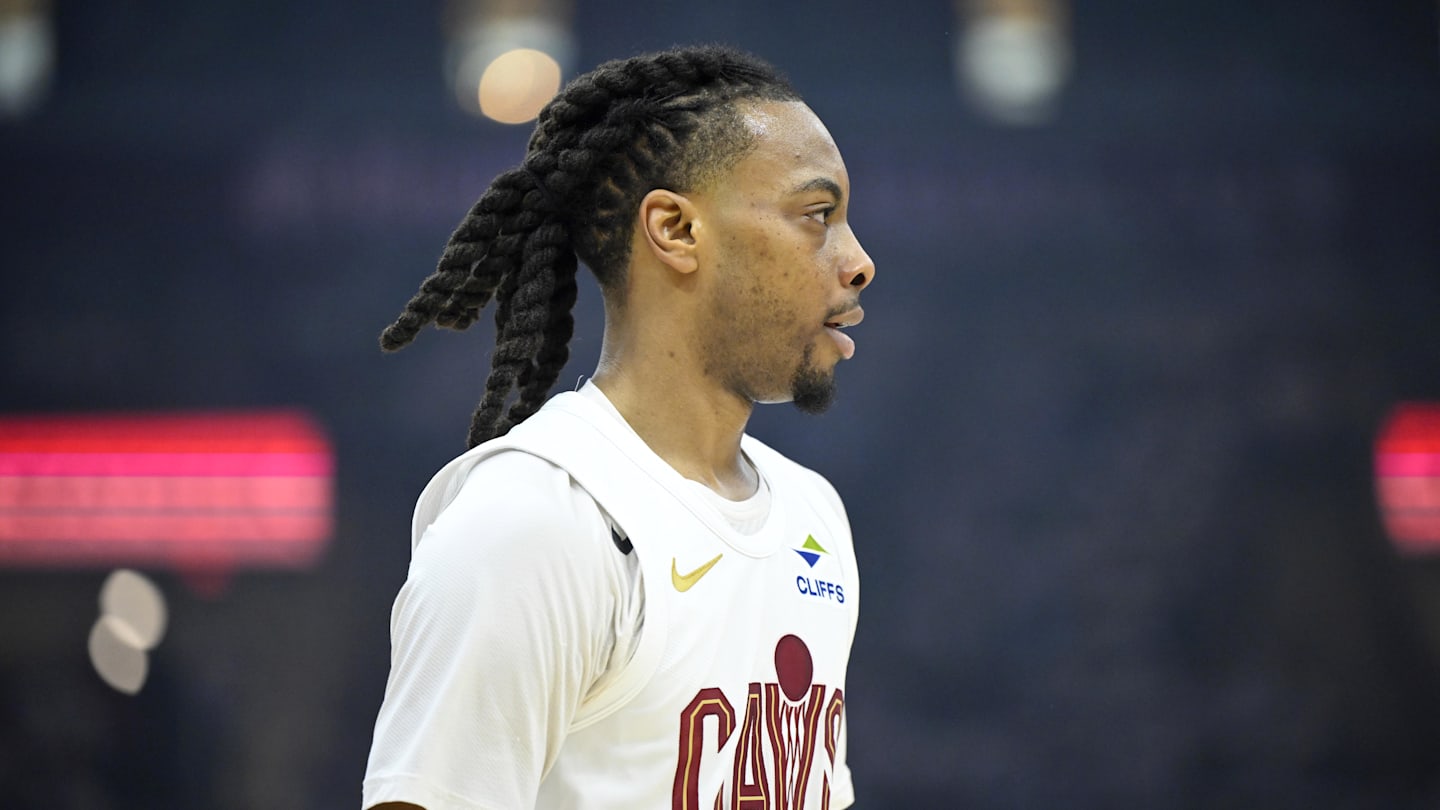
If anything is missing from ESPN’s NBA Finals presentation, it’s aura. It’s nostalgia. It’s that feeling, the one NBC is now promising to bring back.
It’s not about the logo. It’s about the vibe. The drama. The sound of Roundball Rock blaring before a big game, the old-school graphics, the starting lineup intros, the camera angles that made every Finals moment feel monumental. And, of course, Jim Fagan’s voice introducing the starting lineups like it was a game that mattered.
NBC doesn’t just want to cover the NBA again. They want to own the atmosphere. Noah Eagle, who’s set to be the network’s No. 2 play-by-play voice, gets it. He grew up watching those old NBC broadcasts. That’s how he fell in love with the league. Now, he’s part of the team trying to revive that magic without getting stuck in the past.
“I think that a lot of us, whether it’s people my age, people are in their 40s, 50s, 60s, there’s always moments where you say, ‘I would love to go back and re-experience this.’ Just as we were talking about the first epic memory of NBA fandom,” Eagle told Brandon Contes on the Awful Announcing Podcast.
[embedded content]
Eagle says NBC’s goal isn’t to run a nostalgia play for 11 years. It’s about blending the old with the new. NBC Sports President Rick Cordella has made that clear publicly, and Eagle echoed the message. This isn’t going to be a highlight reel of the ’90s. It’s going to be a modern show with roots in what made people fall in love with the NBA in the first place.
“Can you blend that nostalgia with the current game and find this perfect marriage between the two?” Eagle asked. “I think we can. And I think that you can benefit off of doing both of them while celebrating the past and doing things that worked in the past while also building up the future. And that’s really our goal over the next 11 years is to build up the future of this league and continue to push the stars, and push the teams, and push the stories more than anything.”
That’s the real play NBC is trying to make in getting back to its NBA roots. Not just bringing back what people remember but reminding them why they cared in the first place. And then connecting that energy to the next generation of stars. Eagle pointed to what NBC already does with Sunday Night Football, the Olympics, and Big Ten Saturday Night. They build around the moments, yes, but they also build around the people, too.
“I think that’s what NBC is so great at with our current properties… the storytelling and getting to the heart of what these amazing athletes have done, how they’ve gotten to this point, how the teams have been built, the players, behind-the-scenes that you don’t even think about, whether they’re in the front office or assistant coaches,’ Eagle says. “That’s, I think, what we’re going to try to do, and that’s certainly what they did in the ’90s and early 2000s. So the hope is that with all that nostalgia, we still get to the meat of what you’re looking to get to for an audience.”
Of course, nostalgia’s return hasn’t come without a weird, modern twist. NBC has already used artificial intelligence to recreate the voice of Jim Fagan. It’s a choice that fits the theme but also raises a bigger question: how far can you push nostalgia before it becomes a simulation?
From Eagle’s perspective, AI is a tool, but one with obvious limits.
“I think everybody, no matter what field you’re in, there is a concern with what AI can do,” Eagle said. “The joke I always made is, ‘I’ve seen too many movies where the robots eventually take over.’ Haven’t we learned from all that media that we’ve gotten to consume over decades that The Terminator is not necessarily a good thing?”
He’s not wrong.
“But, with that being said, I do think it’s a tool,” he continued. “And I think as we continue to learn what it’s capable of and what we can truly use it for, there are aspects that it can be positive.”
That said, Eagle made it clear that when it comes to live play-by-play, no machine can replace the human instinct.
“To answer your question more directly, there’s always a concern,” Eagle said. “I think the one thing that AI is going to lack is the human touch. And for broadcasting and certainly live broadcasting a live event, I think it’s difficult. What they’ve used it for so far, to your point, is voiceovers. I feel for the voiceover actors and voiceover broadcasters out there that would potentially lose jobs because of it.
“For me and my job and play-by-play for sports — whether it’s basketball, football, tennis, etc. — you do lose the human aspect. The big play happens, there’s an immediate human reaction that I think is required still to do a good job within the broadcast because you’re hoping to match what the audience is going to feel.”
And that’s where Eagle draws the line. AI can replicate the words. It can’t replicate the feel.
“There might be people that don’t care about that,” he said. “But if I had to guess or bet if you had one broadcast that was AI and you had one broadcast that was a human being, I think people would gravitate towards the human being because they would get more of that feel. If we go back to that nostalgia aspect, you’re not getting the real John Madden necessarily. You might get a phrase. What made John Madden so great was his reaction. What makes Cris Collinsworth great are those reactions in the booth… You need that. To me, I think we all require that.”
That’s where Eagle still feels safe — for now.
“Hopefully, the Terminator doesn’t come, and Judgment Day is still far away,” he quips.
In the end, that’s the line NBC is trying to walk. It wants to lean into the past but not live in it. Recreate the moments, but make them matter again. And maybe, most importantly, make it sound like the old days without feeling robotic.
That’s what separates nostalgia from novelty. That’s the difference between a simulation and a show that still gives you goosebumps before tipoff. NBC doesn’t just want to remind you what the NBA used to feel like. It wants to make you feel it all over again.
Listen to the full episode of the Awful Announcing Podcast featuring Noah Eagle beginning Friday, June 13. Subscribe to the show on Apple Podcasts, Spotify, and wherever you get your podcasts. For more content, subscribe to AA’s YouTube page.


